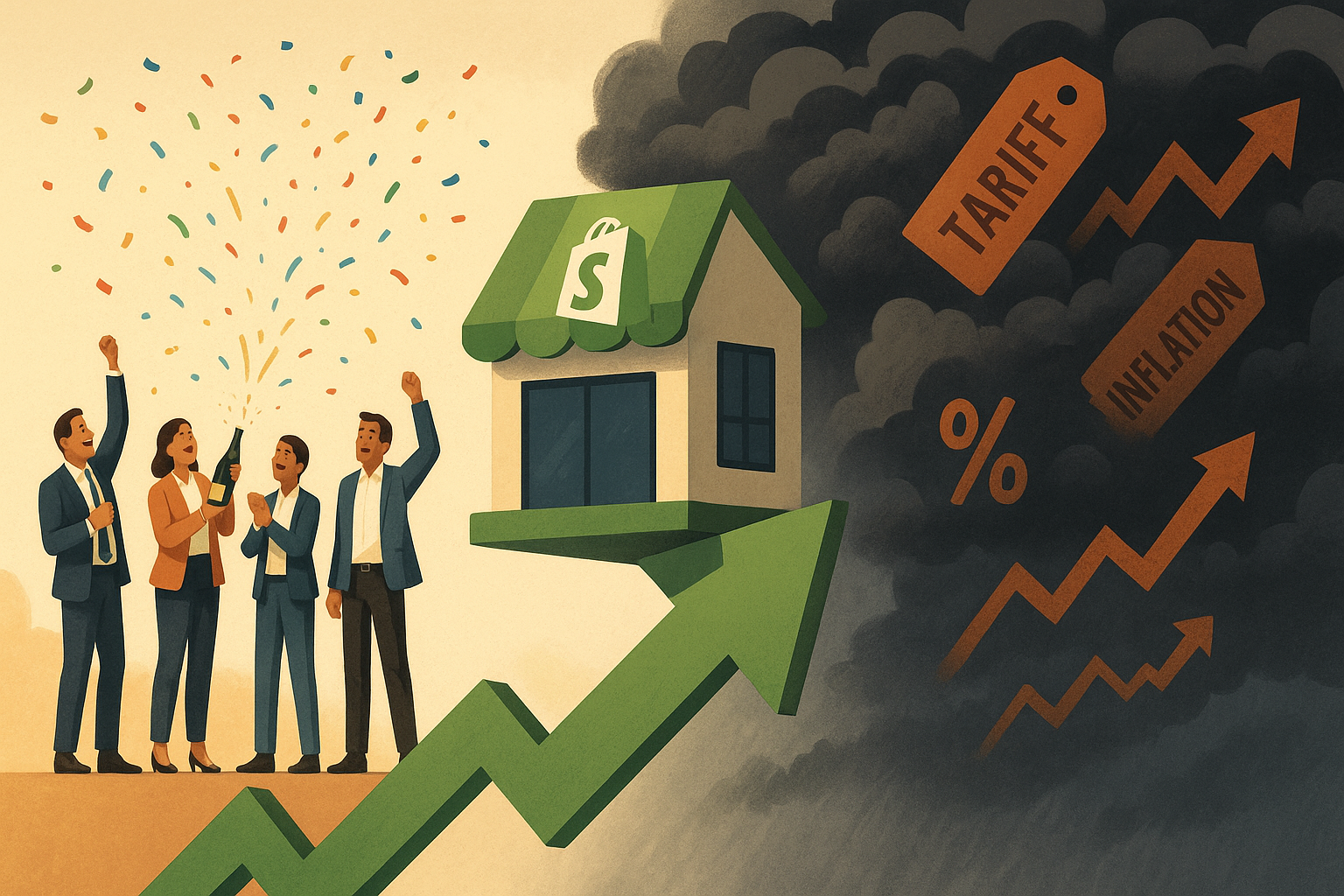Shopify investors are throwing one hell of a party right now. The e-commerce platform's shares surged a whopping 20% after their latest earnings report dropped—the kind of jump that makes you wonder if they discovered gold instead of just beating analyst expectations.
But hold on a minute.
I've been covering tech stocks long enough to recognize when the market might be getting ahead of itself. This rally feels... well, a bit like celebrating that you aced the midterm while completely ignoring the final exam looming next week.
So what triggered this euphoria? Shopify posted better-than-expected earnings and—perhaps more importantly—management waved away concerns about potential Trump tariffs with the casual confidence of someone dismissing a rain forecast on their wedding day. "Not our problem," they essentially said.
The market ate it up. Investors, desperate for good news in a tech landscape that's been shakier than my grandmother's Wi-Fi connection, pounced.
Look, Shopify is undeniably impressive. They've built the digital infrastructure that powers countless online stores—from basement startups to legitimate empires. Their platform has democratized e-commerce in ways that were unimaginable a decade ago. I've interviewed dozens of small business owners who swear Shopify saved their livelihoods during the pandemic.
But valuation matters. Always has, always will.
The company currently trades at multiples that would make even the most optimistic growth investor raise an eyebrow (or two). These numbers only make sense if you believe we've somehow transcended basic economic principles—that inflation, interest rates, and consumer spending habits are merely optional considerations rather than fundamental forces that shape markets.
History suggests otherwise.
Remember 2021? Shopify shares performed their own version of cliff diving when post-COVID inflation fears set in. The stock proved exceptionally sensitive to interest rate chatter—more jumpy than my cat when the vacuum cleaner comes out.
Why does this matter now? Because we're staring down the barrel of potential inflation revival. Those proposed tariffs won't just evaporate into the economic ether—they'll ripple through supply chains, consumer prices, and ultimately corporate margins. Shopify's confidence that they'll remain unscathed seems... optimistic at best.
Meanwhile, the broader economic picture isn't exactly rosy. Consumer spending is showing signs of fatigue (check the latest credit card delinquency rates if you need a sobering data point). The job market is cooling faster than yesterday's coffee.
These aren't conditions where high-multiple growth stocks traditionally thrive.
What fascinates me most is the market's selective memory. Investors are laser-focused on the earnings beat while conveniently forgetting the economic factors that made Shopify's previous downturn so dramatic. It's like admiring a boat's fresh paint job while ignoring the approaching hurricane.
I spoke with three fund managers this week who all expressed similar concerns off the record. "The valuation makes sense only if everything goes perfectly," one told me, "and when was the last time everything went perfectly?"
Good question.
To be clear, I'm not suggesting Shopify isn't an extraordinary company—it is. But even extraordinary companies can be terrible investments when priced for perfection in an imperfect world.
The current exuberance has all the hallmarks of a sugar high. When economic reality reasserts itself—as it inevitably does—Shopify's gravity-defying act could come to an abrupt end. The combination of rising inflation, potential tariff impacts (regardless of management's reassurances), and a slowing economy creates a particularly challenging environment for maintaining such lofty valuations.
For investors riding this wave, it might be worth remembering that what rockets up 20% on good news can drop 30% on bad news. That's just how the market works, especially for momentum-driven tech stocks.
Then again, I've been covering tech long enough to know that sometimes irrational exuberance can last much longer than rational analysis suggests it should.
Maybe this time is different. (But isn't that what they always say?)




